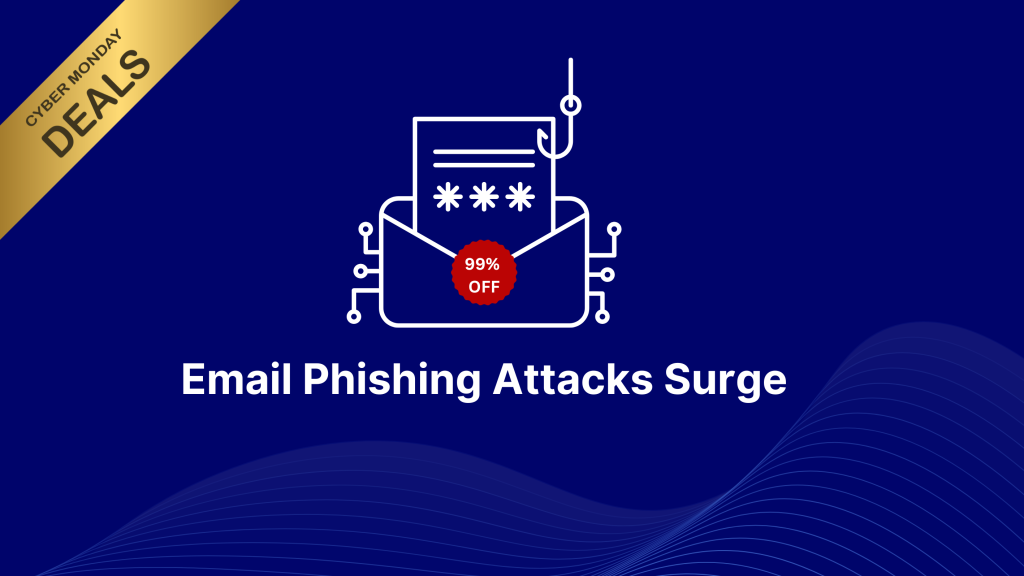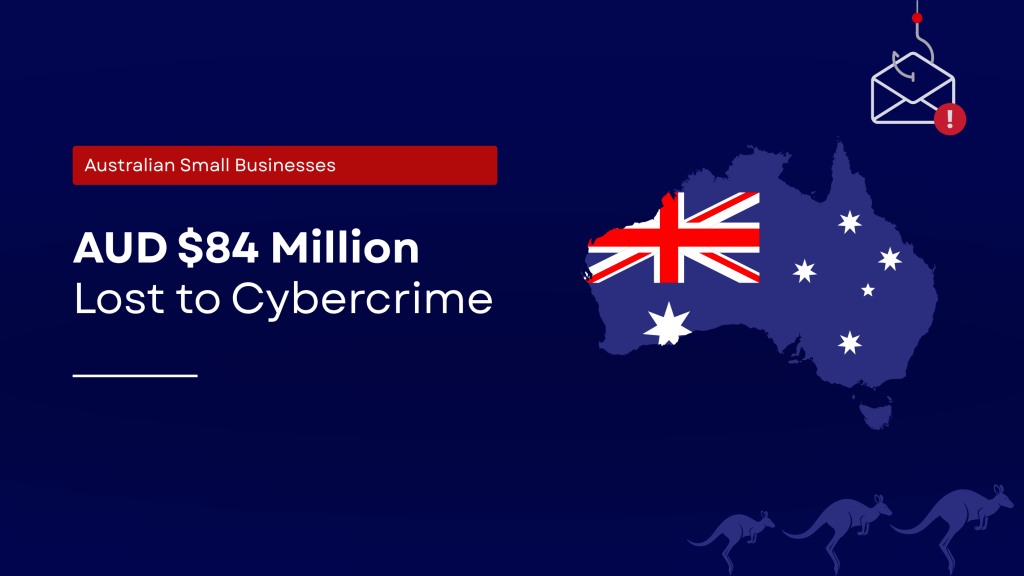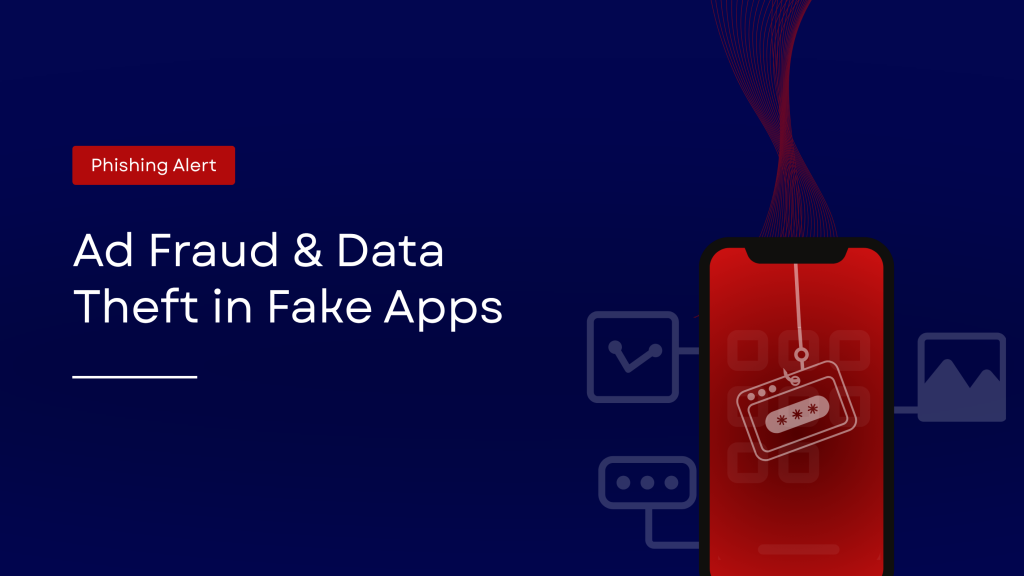Stay Secure This Cyber Week: The Rise of Phishing Attacks

Black Friday and Cyber Monday: A Prime Target for Phishing Attacks
Cyber Week has become a critical time for businesses to engage customers with deals, promotions, and campaigns that drive revenue. Unfortunately, this surge in email activity also attracts a darker force—phishing attacks.
Phishing is a type of cybercrime where attackers impersonate legitimate organizations to deceive individuals into sharing sensitive information or making unauthorized transactions. These attacks increase significantly during Cyber Week, when email traffic is at its peak and customers are more likely to engage with promotional emails.
For businesses, the consequences of falling victim to phishing attacks can be devastating, ranging from financial losses to irreparable damage to their reputation. The solution? Robust email authentication protocols that protect your domain and your customers from being exploited.
What Makes Cyber Week a Hotspot for Phishing?
The high volume of emails during Cyber Week creates the perfect storm for phishing attacks. Consumers are actively looking for deals and are more inclined to click on emails that appear to come from trusted brands. Cybercriminals exploit this behavior by crafting emails that mimic genuine communications from well-known businesses.
Some common tactics used during Cyber Week phishing campaigns include:
- Fake Promotions and Offers: Fraudulent emails promise exclusive deals to lure recipients into clicking malicious links.
- Impersonating Customer Service: Attackers pose as support teams requesting account details or payment verification.
- Order Confirmation Scams: Phishing emails claim to confirm a nonexistent order, tricking users into providing login credentials or credit card information.
For businesses, these attacks don’t just hurt customers—they can also erode trust in your brand, even if the phishing email didn’t originate from your company.
The Danger of Brand Impersonation in Phishing Attacks
One of the most damaging aspects of phishing attacks is brand impersonation. Cybercriminals use your business’s identity to gain the trust of recipients, who believe the email is coming from a legitimate source. This type of impersonation can have far-reaching consequences, including:
- Lost Revenue: Customers redirected to fraudulent websites may make payments that never reach your business.
- Reputation Damage: Even one successful phishing attack can lead customers to question the legitimacy of your brand.
- Legal Liability: If customers believe your business failed to protect their data, you could face legal repercussions.
Email authentication is the key to preventing these risks. By ensuring that only authorized senders can use your domain, you protect both your business and your customers from phishing schemes.
How Email Authentication Stops Phishing at Its Source
Email authentication uses a set of technical protocols to verify the authenticity of emails sent from your domain. These protocols prevent cybercriminals from spoofing your email address and help block phishing attempts before they reach recipients.
Here’s how the primary email authentication protocols work:
- SPF (Sender Policy Framework): This protocol verifies that the email is sent from an IP address authorized by your domain. Any unauthorized sender will fail the SPF check, signaling that the email is likely fraudulent.
- DKIM (DomainKeys Identified Mail): DKIM attaches a digital signature to your emails, ensuring their content hasn’t been tampered with during transit. This protects your email’s integrity and builds trust with recipients.
- DMARC (Domain-based Message Authentication, Reporting, and Conformance): DMARC ties SPF and DKIM together, providing an enforcement mechanism to block fraudulent emails and offering detailed reports on email activity.
Why DMARC Enforcement Is Critical for Cyber Week
DMARC is especially important during high-traffic periods like Cyber Week. By setting your DMARC policy to “p=reject,” you can ensure that only emails passing SPF and DKIM checks are delivered to recipients. Here’s why DMARC enforcement matters:
- Blocks Unauthorized Emails: Prevents phishing emails from being delivered to your customers.
- Strengthens Trust: When customers know your emails are authenticated, they’re more likely to engage with your messages.
- Enhances Deliverability: ISPs prioritize emails from domains with DMARC, ensuring your legitimate emails reach inboxes rather than spam folders.
- Provides Visibility: DMARC reports give you insights into who’s attempting to send emails using your domain, allowing you to address vulnerabilities.
Steps to Secure Your Business During Cyber Week
To protect your business and customers from phishing attacks this Cyber Week, follow these best practices:
- Implement Email Authentication: Ensure SPF, DKIM, and DMARC are configured correctly for your domain.
- Enforce a Strict DMARC Policy: Move to “p=reject” enforcement to block unauthorized emails entirely.
- Monitor Reports Regularly: Use DMARC reports to identify and mitigate potential threats in real-time.
- Educate Your Team and Customers: Train employees to recognize phishing attempts and inform customers about your official communication practices.
The Role of Automation in Email Authentication
Managing email authentication can be complex, especially for businesses with multiple domains or email streams. Automation tools like Skysnag simplify this process, ensuring consistent enforcement and reducing the risk of human error. With our automated solutions, businesses can focus on growing their operations without compromising email security.
Prepare for a Phishing-Free Cyber Week
Cyber Week offers immense opportunities for businesses, but it also brings increased risks. Phishing attacks can undermine your efforts and harm your customers. By prioritizing email authentication, you can prevent impersonation, protect your domain, and build trust with your audience.
Don’t wait until it’s too late. Implement robust email authentication measures today to ensure a successful, secure Cyber Week.






